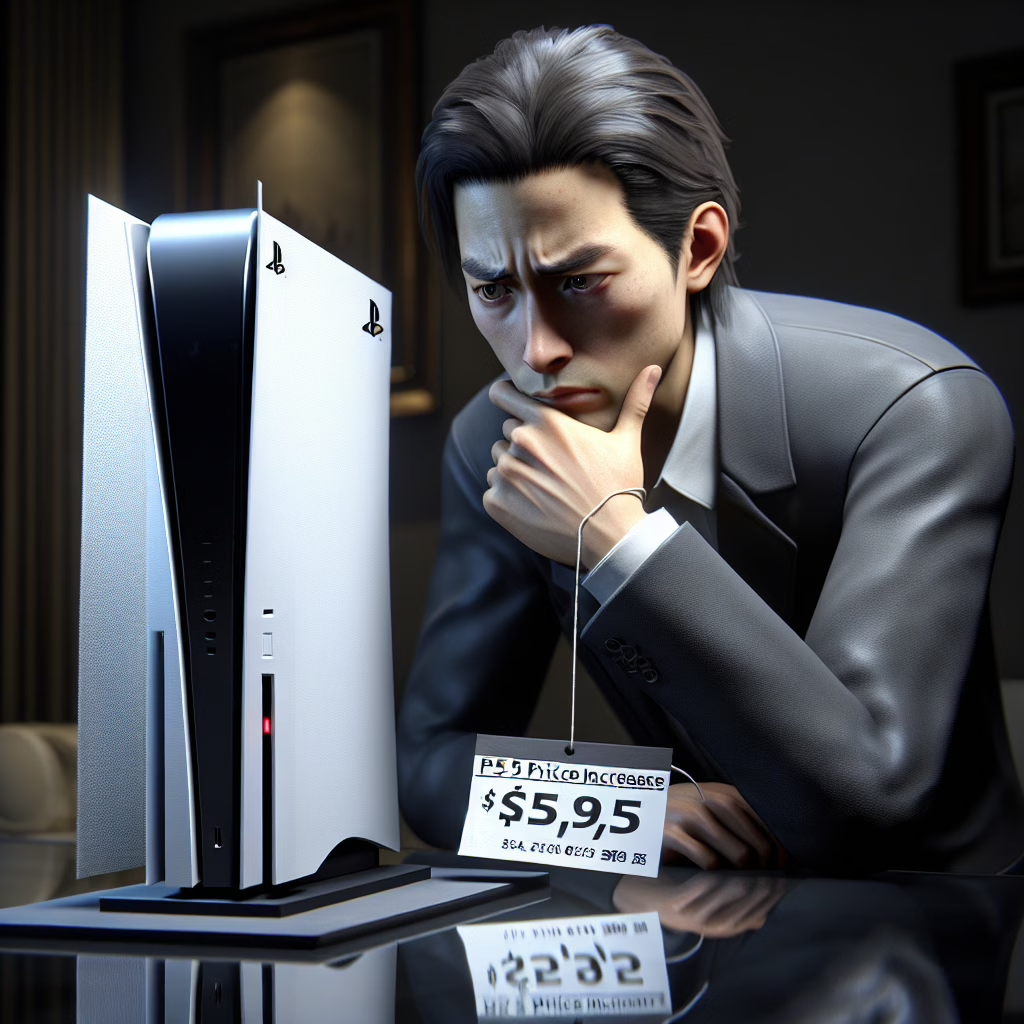Ah, the PlayStation 5—Sony’s dazzling console that has captured the hearts (and wallets) of gamers everywhere! However, as we wade into the waters of 2025, it seems that the price tag on this gaming marvel is preparing for a little swim upstream. Yes, dear readers, due to tariffs and other economic shenanigans, the price of the PlayStation 5 is about to get a bit heavier. But fear not! In this article, we’ll navigate through these choppy waters with humor and insight, helping you understand what this means for your gaming adventures.
The Price Hike: What’s Going On?
Let’s break it down. The PlayStation 5 has been a hot commodity since its launch. Gamers have eagerly lined up (virtually and literally) to snag one of these beauties. However, recent news indicates that Sony may have to increase the prices due to tariffs imposed on imported electronics. You know, just a little thing called supply chain challenges and global trade policies making our lives more interesting!
To put it simply, tariffs are taxes imposed on goods from other countries. In this case, they affect the cost of manufacturing and importing those delightful consoles we love. As a result, Sony might need to pass some of those costs onto consumers. So, if you thought you could snag a PS5 for that sweet retail price—think again! This is not just any old price increase; it’s a price hike with a side of frustration.
Why Should Gamers Care About Tariffs?
Good question! You might be wondering why tariffs should even be on your radar when all you want is to obliterate your enemies in the latest game. Well, tariffs can significantly impact the overall pricing landscape of electronics like the PlayStation 5. Imagine going to your favorite burger joint only to find out that due to rising beef prices, your beloved cheeseburger now costs ten bucks more. That’s basically what tariffs do—raise the cost of your gaming experience.
But wait! There’s more! These tariffs also affect accessories and games you might want to buy along with your new console. Think about it: every time you want to grab an extra controller or that limited edition game, you might find yourself digging deeper into your pockets.
What Can You Do About It?
Now that we’ve scared you with tariff talk and rising prices let’s focus on solutions. First off, if you’re eyeing a PlayStation 5 and can manage it now—buy it sooner rather than later! Prices might jump higher than Mario after hitting a question mark block.
Also, keep an eye on sales events and promotions! Just because tariffs are looming doesn’t mean retailers will stop trying to make sales. Black Friday, Cyber Monday—you name it—these occasions could provide an opportunity to snatch up a PS5 at a reasonable price before those pesky tariffs come knocking at your door.
The Future of Gaming in 2025
As we look ahead into this brave new world of gaming in 2025, we must embrace change with open arms (and perhaps a slightly lighter wallet). The good news is that gaming technology continues to evolve at lightning speed. With advancements in cloud gaming and subscription services, there may be alternative ways to enjoy gaming without breaking the bank on hardware alone.
Speaking of alternatives, consider exploring used or refurbished consoles if you’re looking for a bargain. Sometimes those gems can be found hiding just around the corner—or online if you’re willing to sift through listings faster than Sonic can run!
Conclusion: Stay Informed and Game On!
In conclusion, while the potential price increase for the PlayStation 5 due to tariffs might feel like getting hit by a blue shell right before crossing the finish line, there are ways around it. Stay informed about pricing trends and make strategic purchasing decisions.
As always, we’d love to hear your thoughts! How do you feel about the upcoming changes? Are you planning to buy a PlayStation 5 despite possible price hikes? Share your opinions in the comments below!
And before we go, a big thank you to The Verge for their original insights on this topic! Stay tuned for more updates on changes in the gaming industry.

